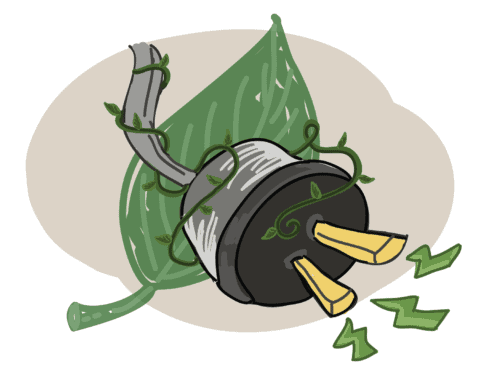With awareness of climate change becoming more widespread, many are wondering what can be done to reduce emissions and create a more sustainable future. The University of Saskatchewan aims to expand upon this discussion with the Sustainable Energy Conference.
May 27 marks the first day-long Sustainable Energy Conference to be held on campus. Organizers aim to base the conference around open discussions and hope to provide a look into the future of energy in Saskatchewan. With speakers from a wide variety of fields, including academic, business and trade, the conference offers a chance for new ideas and collaborative development.
Martin Boucher, a graduate student in the School of Environment and Sustainability at the U of S, is one of the event’s organizers. Boucher says that the conference is especially relevant right now, following an announcement from Premier Brad Wall about ensuring that 50 per cent of the province’s energy is to come from renewable energy sources by the year 2030.
“The end goal of the conference is to provide a report for government, to have some of our conversations and maybe to provide a model for SaskPower to do something along the lines of the  dialogues that will occur,” Boucher said.
dialogues that will occur,” Boucher said.
With a number of speakers hailing from the U of S, including the director of the School of Environment and Sustainability and a professor from the department of political studies, this conference provides a unique opportunity for students to get involved with discussion about the environment. Volunteer opportunities are available through application and tickets for the event can be purchased online, with a reduced price for students.
The Sustainable Energy Conference has been a long time in the making, beginning with a panel held in January 2016.
“We built this conference off of a panel discussion we had on renewable energy. It was very successful; at the end of the day we had about 160 people come out to the panel session so we kind of decided to build off of that momentum,” Boucher said.
The conference is uniquely divided into small, concurrent breakout sessions with multiple panelists, speakers and moderators throughout the day. Boucher says the goal of these smaller presentations is to spark conversation and inspire out-of-the box thinking.
“We structured the break-out sessions kind of provocatively. For example, on our risk perceptions panel, we have folks that are representing the nuclear industry along with folks from the David Suzuki foundation, of which the official policy is not in support of nuclear technology, so it’ll be interesting to see the discussion that unfolds,” he said.
Organizers plan to provide many opportunities for conversation and hope to look at the issue through many different lenses.
“We tried to choose many topics that were timely, we’re talking about First Nations issues, Renewable Cities, carbon capture and storage, risk perception, things like nuclear energy and concerns some might have, disruptive technologies, increased storage and electric vehicles, how it all affects the grid and some benefits and negatives to different technologies,” Boucher said.
Maintaining transparency throughout the planning of the conference has been a top priority for organizers, and there is an emphasis on openness and inclusivity of different viewpoints.
“We also aimed for broad sponsorship, with sponsors from SaskPower, from the Sylvia Fedoruk Centre for Nuclear Innovation, the Saskatchewan Environmental Society and the [U of S] Office of Sustainability,” Boucher said.
Along with individuals from the U of S, speakers from across Canada will be joining in the conference discussions.
“We have some awesome speakers, Doug Ospeth is coming from SaskPower, Neil Alexander from the Fedoruk Centre, Brett Dolter from the Institute of the Environment at the University of Ottawa and Anouk Kendall from Decentralized Energy Canada,” Boucher said.
Boucher remarks that the the Sustainable Energy Conference is a critical step moving forward for discourse about environmental changes in Saskatchewan.
“What’s really cool is that we’re kind of at a point where we’re done talking about climate change, and we agree that now it’s time to decarbonize and lower our emissions,” Boucher said. “We’re agreeing that there is an issue and now we’re trying to figure out a way to solve it. It’s unique and it’s actually a really big step.”
—
Emily Migchels
Graphic: Lesia Karalash / Graphics Editor
Leave a Reply